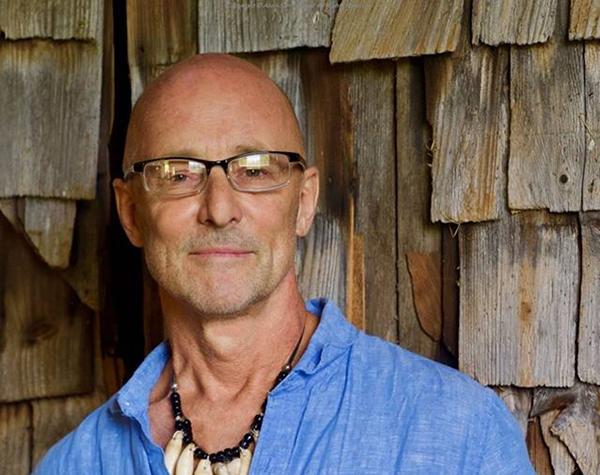
Snow followed in the footsteps of CovertAction Information Bulletin founder Philip Agee in his attempt to expose the close connections between the CIA and multi-national corporations and in his analysis of the political-economy of U.S. imperialism.
Keith Harmon Snow, after suffering from cancer, died in early December at the age of 64. He was a courageous investigative journalist who was ignored by the mainstream media because of his truthful reporting about Rwanda and U.S. foreign policy in Central Africa.
Snow exposed the false narrative underlying the 1994 Rwandan genocide in the West, presenting the Tutsi as the victims of a genocidal Hutu extermination plan, and the Rwandan Patriotic Front (RPF) under the leadership of Paul Kagame as Rwanda’s savior.
Snow’s writings showed, rather, that the RPF instigated a civil war in Rwanda after illegally invading the country from Uganda with U.S. and UK sponsorship, and that Kagame triggered the genocide by shooting down the airplane of Rwanda’s Hutu President Juvenal Habyarimana.
Furthermore, Kagame’s RPF forces carried out a huge proportion of the killings during the genocide—even setting up open-air crematoria to better dispose of the bodies—and perpetrated a genocide of Hutu refugees who were expelled from Rwanda during repeated invasions of the Democratic Republic of Congo (DRC).
Rather than being a bystander to genocide as is commonly believed, Snow’s work detailed how the U.S. was deeply complicit in it. During the late 1980s, the CIA began supporting Tutsi exiles based in Uganda and greenlighted the RPF invasion of Rwanda from Uganda. Paul Kagame was trained in psychological warfare at Ft. Leavenworth, Kansas, where he learned the art of trickery and deceit.
Snow exposed how Kagame worked closely with Roger Winter, head of the U.S. Committee for Refugees (USCR) and a suspected CIA agent who was decorated by Kagame at the July 4, 2012, celebration of the 16th anniversary of the RPF’s victory.
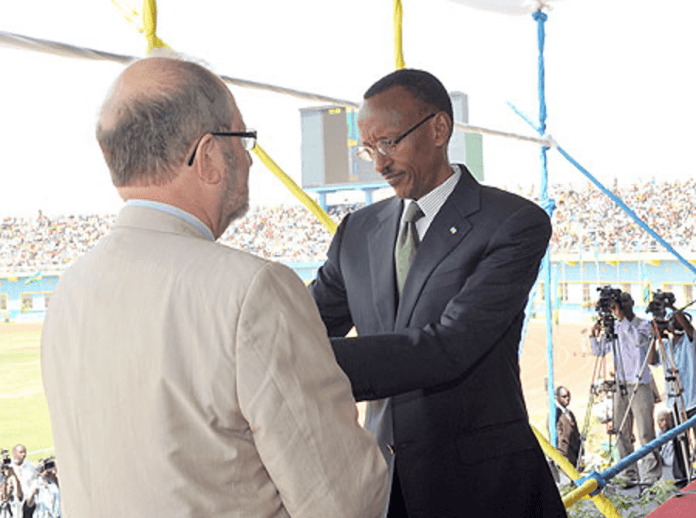
In the early 1980s, Winter had supported the National Resistance Movement (NRM) in Uganda led by Yoweri Museveni, Uganda’s current leader, Kagame and the Hema Tutsi aristocracy, who fought against Uganda’s then-President Milton Obote, a one-time socialist.
For the remainder of the decade, Winter worked to advance the militant plans of the Rwandan Tutsi aristocracy, which had been expelled from Rwanda when the Hutu took over in the 1960s and wanted to establish a greater Tutsi-Hema empire in the heart of Africa.[1]
Snow made clear that the motive behind Winter and the CIA’s operations in Central Africa was to establish a U.S.-UK proxy regime in Central Africa that could help Western multi-national corporations access the DRC’s rich mineral wealth.
Winter also provided covert support to John Garang, commander of the Sudanese People’s Liberation Army (SPLA), a U.S. proxy force known for its brutality that waged an insurgency against Sudan’s pro-China government and contributed to the division of oil-rich Sudan.[2]
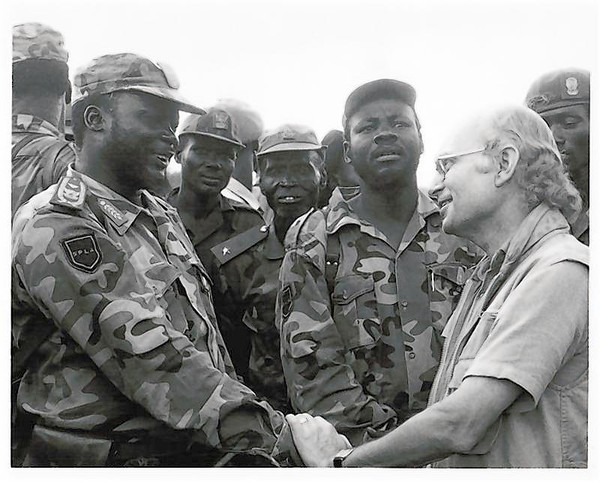
Writing from the Heart
Born in Williamsburg, Massachusetts, Keith Harmon Snow first became knowledgeable about Central African politics after working as a genocide investigator for UNICEF in Rwanda.[3]
Starting his career as a scientist working on highly classified weapons systems for the Pentagon, Snow found a higher calling as a war correspondent, working in, among other places, Afghanistan, Congo, Ethiopia, Sudan and Mongolia.
An expert witness in U.S. immigration asylum hearings for Rwandans, Snow held audience with Muammar Gaddafi prior to the U.S. invasion of Libya, which he strongly opposed, and testified before the International Court of Justice in Spain, supporting the war-crimes indictments against current Rwandan government officials.
Blacklisted in the mainstream U.S. media and barred from three U.S. colleges (Smith, Mt. Holyoke and Hampshire) and two African countries (Ethiopia and Rwanda[4]), Snow received four Project Censored Awards, was often consulted by Africans, and was invited to speak in Paris in 2023 and again in 2024 at the convention of the Rwandan government-in-exile.
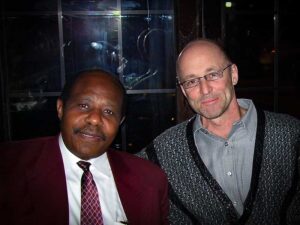
Described by one of his Congolese friends as “adventurous” and “full of life,” Snow visited most countries in Africa and swam in all of Congo’s rivers. Arrested for civil disobedience at anti-globalization protests in the 1990s, he traveled widely in Southeast Asia, chronicling his journeys through both written and photo journalism.[5]
Living for the last several years in sparse conditions on Greens Island, Maine, Snow appeared in the acclaimed documentary Enjoy Poverty by Renzo Martens that exposed Unilever plantation slavery in the DRC.
Snow also wrote a book, The Worst Interests of the Child, exposing corruption in the Connecticut family court system, which Snow said had been transformed into a “private profit-based system of extortion and criminal racketeering” that “enriches lawyers, judges, doctors and psychologists.”[6]
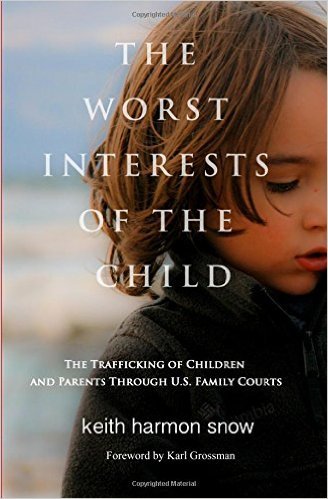
Survived by a young son, Birch, who he doted upon, Keith’s primary source of work was ConsciousAlliance.com, which jolted minds across the world into perceiving Africa`s story of wars and poverty in a new light.
His journalism was of extremely high quality. Snow always provided detailed evidence to support his indictment of corrupt government institutions, and he was astute in recognizing the economic imperatives underlying most state crimes.
Snow’s writings also provided a strong African voice missing from mainstream U.S. media accounts, and expressed compassion for the victims of Western crimes and their African proxies.
According to P.D. Lawton, South African editor of African Agenda, Snow “wrote from the heart,” powered by what Lawton called “one of the most brilliant minds.”
Decrying the U.S. militarization of Africa, Snow’s writings not only documented the atrocities of Western-backed regimes in Rwanda and Uganda but also Equatorial Guinea, Gabon and Ethiopia under Meles Zenawi, which committed a genocide against the Anuak people.[7]
At one point, Snow traveled with the SPLA in South Sudan and documented the horrible consequences of the Western-backed civil war and centrality of the drive for oil in fueling it.
Snow wrote that the U.S. strategy “to fracture and divide Sudan is similar to the strategy at work in the Congo, and it echoes the RPF’s strategy…used to achieve regime change in Rwanda, 1990 to 1994.”
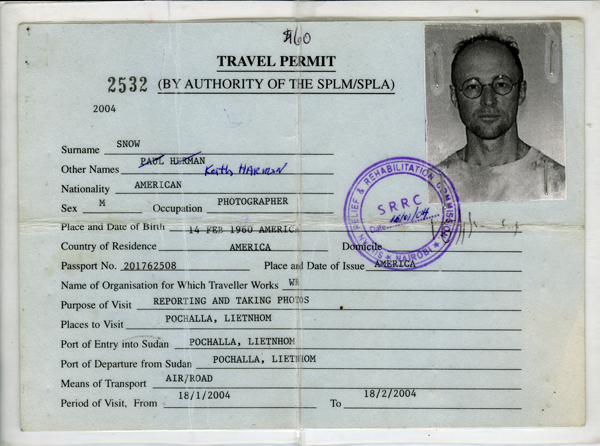
Following in the Footsteps of Philip Agee
Snow castigated journalists reporting on Africa for The New York Times and The Atlantic, among other prestigious outlets, for adopting emotionally potent oversimplifications—as in the false dichotomy created between Hutu villains and Tutsi heroes in the Rwandan genocide.[8]
The same journalists helped manufacture consent by whitewashing U.S. crimes and by failing to disclose how multi-national corporations fueled African conflicts as they bought off politicians like George H.W. Bush and Bill Clinton.
Snow spotlighted the importance of Maurice Tempelsman in driving what he called the “holocaust in Central Africa” that claimed some six to ten million people.
A top Democratic Party donor whose intelligence ties were reflected in his serving as a chairman of the Africa-America Institute, a CIA front involved in propaganda and bringing African leaders to study in the U.S., Tempelsman was chairman of the board of directors of Lazare Kaplan International Inc. (LKI), the largest diamond company in the U.S., and partner in Leon Tempelsman & Son, which has lucrative mining interests throughout Africa.[9]
Tempelsman’s political influence was apparent in 1998 when he accompanied President Bill Clinton on a trip to Central Africa where Clinton expanded U.S. support for the Rwandan and Ugandan governments as they invaded the Democratic Republic of the Congo (DRC) in order to plunder its diamond and mineral wealth.
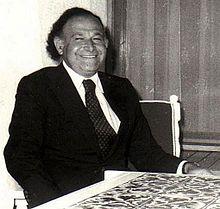
Back in the 1960s, Tempelsman had cultivated close ties with Congolese dictator Joseph Mobutu and worked with CIA agent Larry Devlin to plan the assassination of Patrice Lumumba, who had wanted to place Congo’s mineral wealth under national control. Tempelsman and Devlin further supported Mobutu’s efforts to suppress a rebellion led by Lumumba’s followers.[10]
In a March 2006 article, Snow criticized Human Rights Watch Report for neglecting to discuss how the Oppenheimer-owned Anglo American Corporation and the Canada-based Barrick Gold, for which former President George H.W. Bush was a paid adviser, helped fuel violence in the DRC.[11]
Snow pointed out that a director of Anglo American, Sir Mark Moody-Stuart, was a director of Royal Dutch Shell and a member of UN Secretary-General Kofi Annan’s advisory board, and that the Anglo-Ashanti Company sent its top lawyers into eastern DRC to aid rebel militia leaders being arrested there.
Snow also relayed that a number of mining company owners who profited from the exploitation of the DRC were donors to Bill Clinton, including Jean-Raymond Boulle, who received a billion-dollar deal for mines in the Congo at Kolwezi (cobalt) and Kipushi (zinc) from Laurent Kabila’s Alliance of Democratic Forces for the Liberation of Zaire (ADFL) before they were even officially in power.
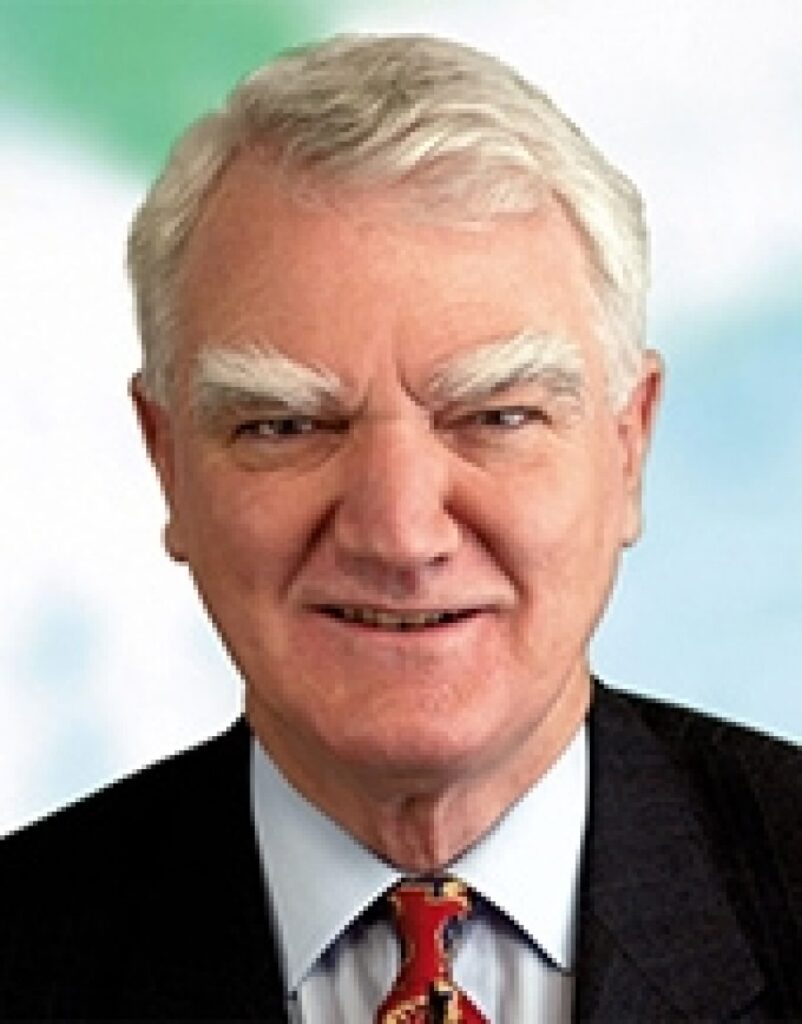
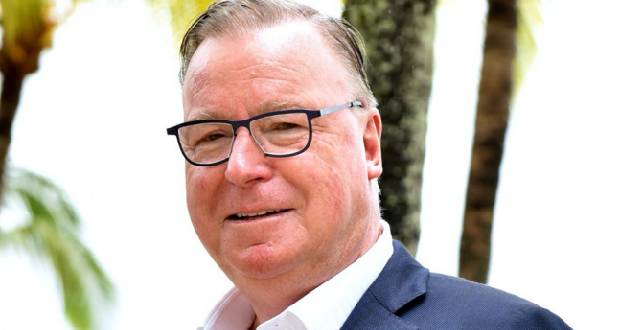
Clinton’s administration, not coincidentally, helped bring Kabila to power by helping to finance the Rwandan-Ugandan invasions of Congo in the late 1990s.
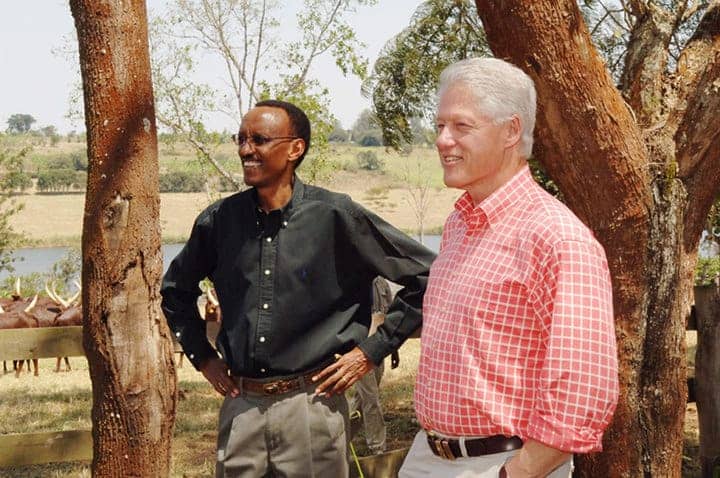
When Kabila tried to reassert local control over the DRC’s mining industry, he was assassinated, and a Rwandan quisling, Hyppolite Kanambe (aka Joseph Kabila), was put in power.
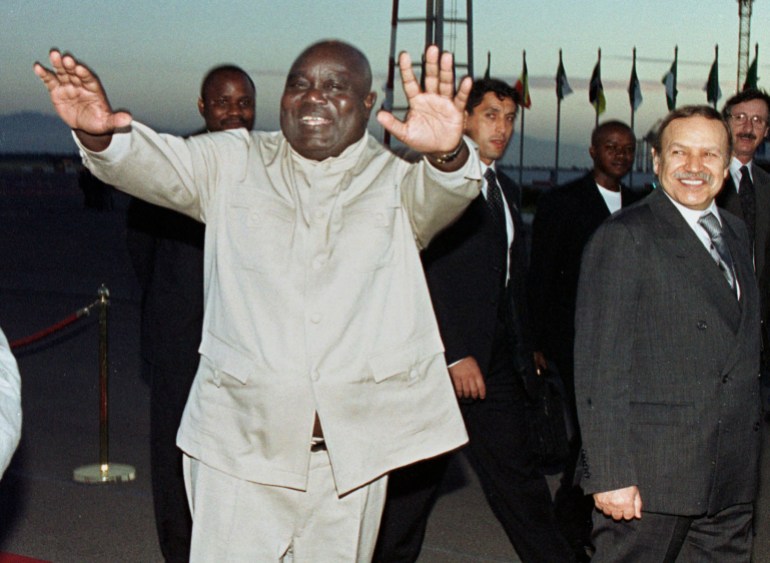
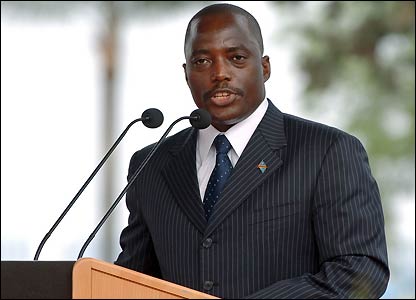
The central resistance to foreign invasion in the DRC was the Mai-Mai militia, which was grouped with other militias by Western media, who in obscuring the real roots of the Congo war, reinforced racist stereotypes of Africans as savages.
Snow’s writings followed in the tradition of CovertAction Information Bulletin founder Philip Agee in his focus on political-economy and the intricate ties between big business, the CIA and White House in fomenting violent conflicts and economic plunder around the world.
Agee’s 1975 book Inside the Company emphasized how corporate plutocrats used the CIA to do the dirty work that would enable them to seize control over natural resources across the so-called Third World.
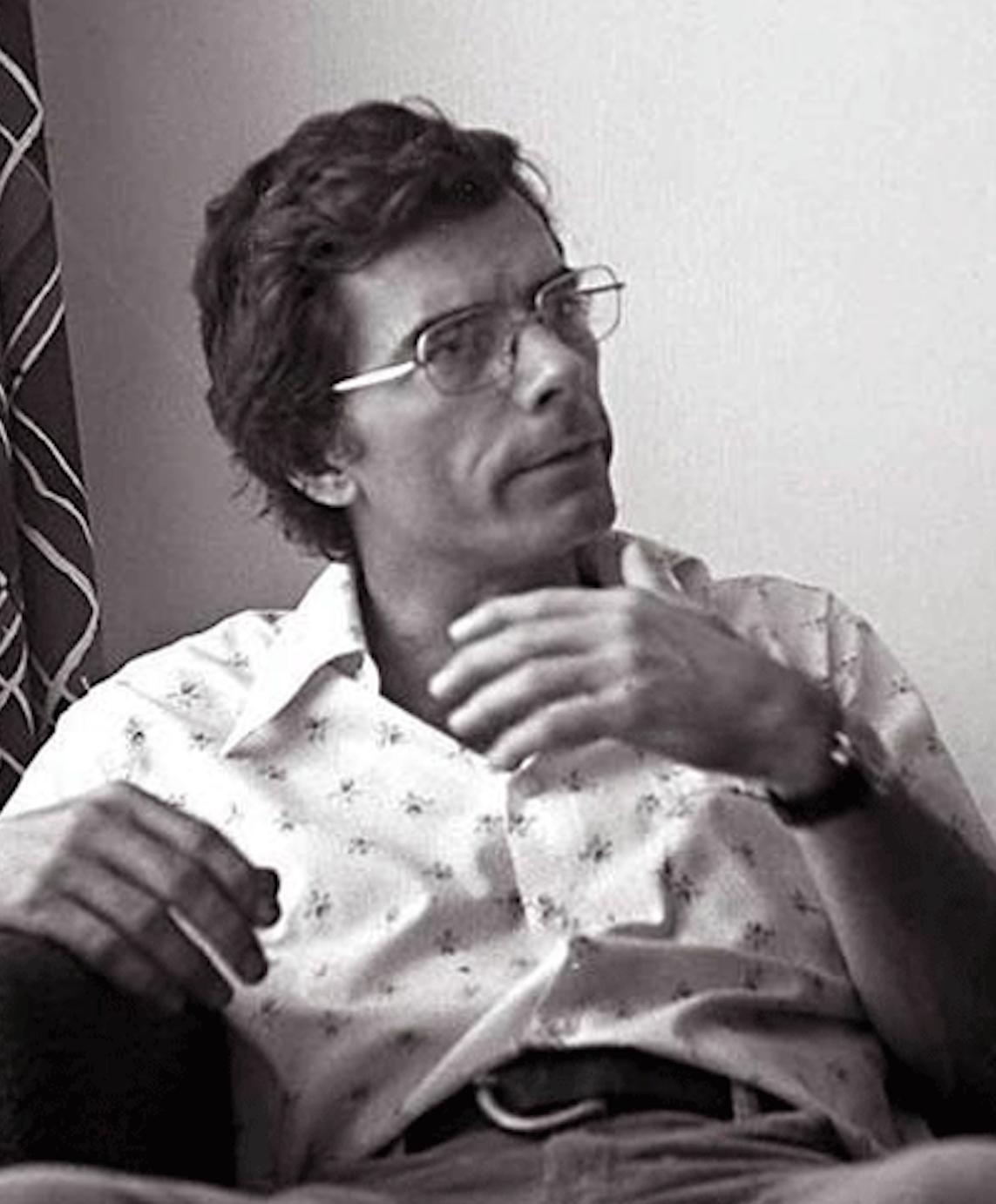
Snow’s writings on Sudan showed how the U.S. launched a three decades-long low-intensity warfare campaign beginning in the mid-1980s after the downfall of U.S. client Jaafar Nimeiri. The latter’s replacement, Omar al-Bashir, ended USAID operations in Sudan that had resulted in the cheap export of gum arabic, a resource, essential for soft drinks (Coke, Pepsi, Fanta) and beer, over which Sudan has a near monopoly.
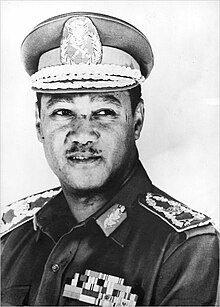
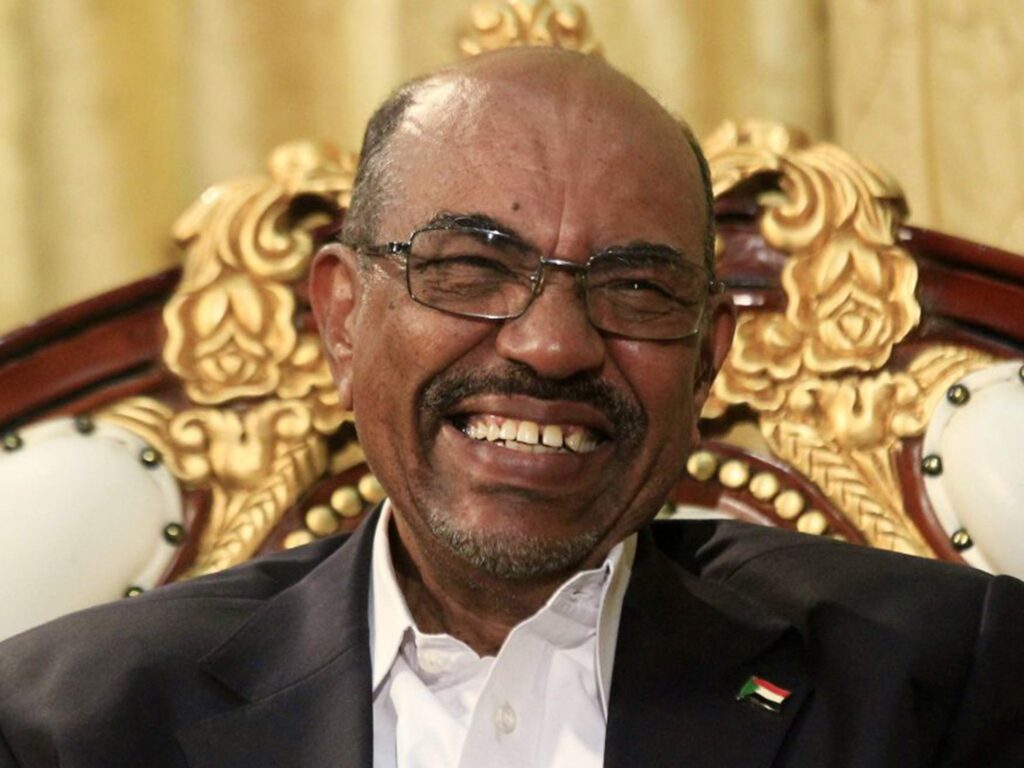
Some of Snow’s articles on the DRC pointed to the profiteering of Israeli billionaires like Beny Steinmetz and Dan Gertler who employed private mercenaries and functioned as assets of the Mossad, which works hand in glove with the CIA, British MI6 and the criminal Kagame and Museveni regimes.[12]
Gertler headed an interlocking network of diamond companies, including Emaxon Finance International, which won the majority rights to the diamonds from the DRC’s state mining company, Société Minière de Bakwanga, MIBA.
Gertler’s access to the U.S. political elite came through Condoleezza Rice, who was friendly with a Brooklyn-born rabbi, Chaim Yaakov Leibovitch, to whom he was devoted.
Snow suggested that Gertler—who finances right-wing Israeli politicians—bribed Congolese and Angolan officials to protect his mining interests and was so close with Hyppolite Kanambe that he was one of only two white men invited to his wedding.
Emaxon Finance International, according to Snow, hid much of its ill-gotten gains in offshore “tax havens” that helped to “shield from prosecution people who are responsible for money laundering, weapons and drugs operations, assassinations and other terrorism.”
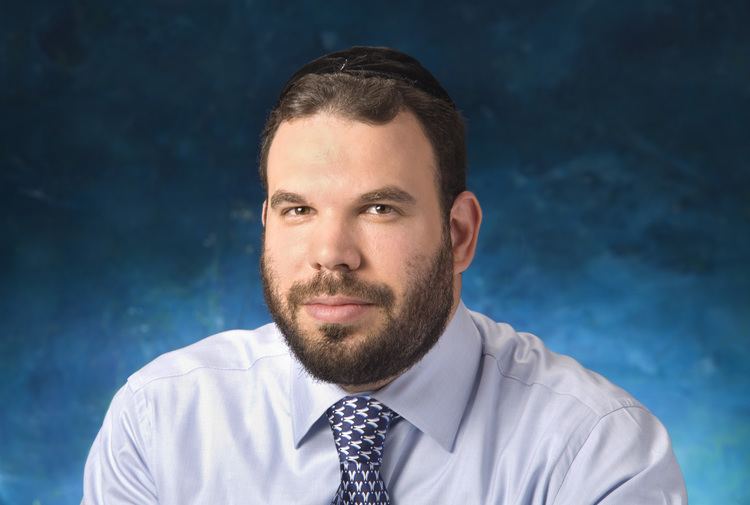
The Responsibility of Intellectuals—and Celebrities
Among other things, Snow’s writings are significant in pointing to the corruption of the journalistic and academic establishments, which have often parroted the RPF line of events and helped suppress the truth about U.S. foreign policy in Africa.
Snow’s review of a book on the murder of former Rwanda intelligence chief Patrick Karegeya by Paul Kagame characteristically criticized a well-known New York Times writer, Howard W. French, for regurgitating what Snow called the false “Cattle-Herding-Tutsis-as-Victims-of-Hoe-Happy-Hutu-Killers narrative.”
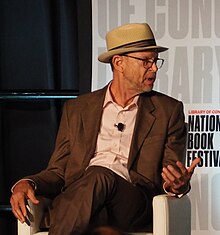
The same review castigated Joshua Hammer for assaulting the truth in a hit piece in The New York Times Magazine directed against Rwandan dissident Paul Rusesabagina (aka Mr. Hotel Rwanda) who was kidnapped and imprisoned for criticizing Kagame.[13]
Calling Hammer “an unabashed apologist for mass murder [who] actively promulgated anti-Hutu …disinformation in support of the genocide against Hutu people,” Snow points out that Hammer failed to disclose to his readers a close relationship with the RPF whose propaganda he was helping to regurgitate.
Snow felt that Hammer was an operative for the CIA or Mossad—or both. Hammer’s New York Times Magazine article was so bad that Dr. Brian Endless, a professor at Loyola University Chicago who had worked with Rusesabagina, emailed the editor to tell him that he had been misquoted, stating “Joshua interviewed me and many other people affiliated with Paul Rusesabagina, plus a number of journalists and academic experts. He clearly ignored all of our input, and instead told the story that has been put out since shortly after the terrible 1994 genocide by the propaganda machine of Rwandan President Paul Kagame.”
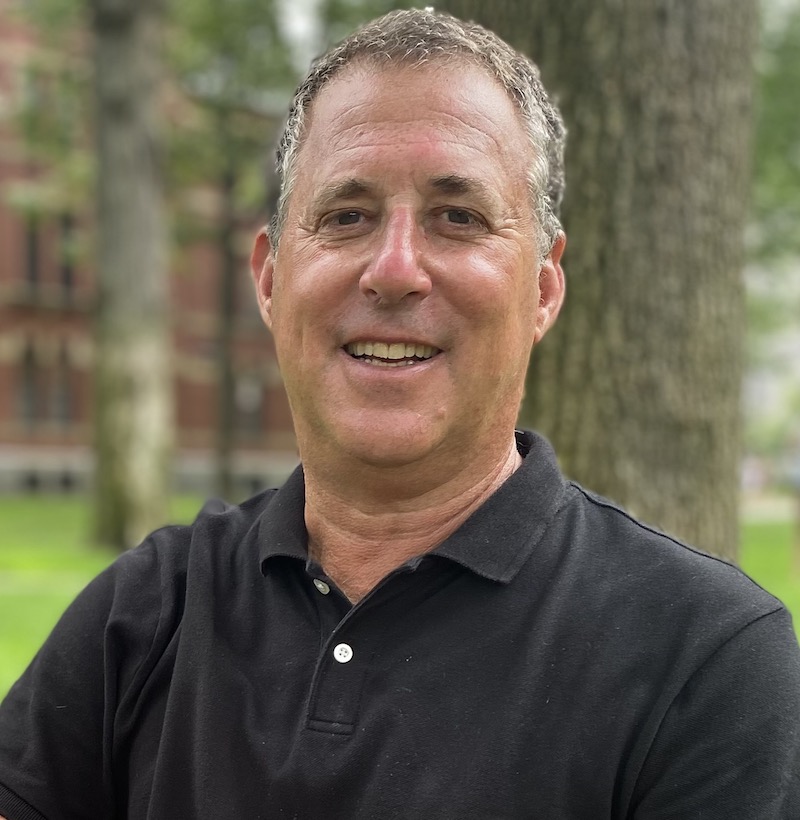

Snow’s writings also took aim at Dr. Eric Reeves, a professor at Smith College and so-called anti-genocide activist who functioned as a propagandist for the SPLA and was an open proponent of low-intensity warfare and U.S. regime-change operations in Sudan.[14]
Additional writings of Snow took aim at Philip Gourevitch, Howard Buffett, Andrew Young, Ben Affleck, Paul Farmer, Samantha Power, George Clooney, Rick Warren, and many other Western writers and celebrities who advanced pro-RPF and U.S. State Department views on the Rwandan and other African conflicts.
Snow made a point of emphasizing how U.S. humanitarian aid programs were often integrated into larger foreign policy initiatives that had resulted in gross humanitarian crises.
Humanitarian aid could be used as a cover for weapons supplies and other political support and was usually channeled to groups supported by the U.S., UK and Israel, and withheld from victims of Western imperialism like the Hutu.
What Snow called the NGO industry was also destructive because it inhibited the growth of progressive social movements and grassroots initiatives and fostered dependency on Westerners.
Snow’s writings cast critical attention on celebrity spokesmen for UN agencies that insidiously worked to advance the Pentagon’s interests. This occurred while fueling what he called the “misery industry” by which Americans are compelled to give money to private charities as they remain oblivious about the special interests and political structures driving all the misery.
Some of these celebrities, like Ben Affleck, who became very close with Paul Kagame’s family and met in Central Africa with Laurent Nkunda, a Rwandan militia leader implicated in gross human rights crimes in the DRC, openly advanced propaganda for U.S. client states.
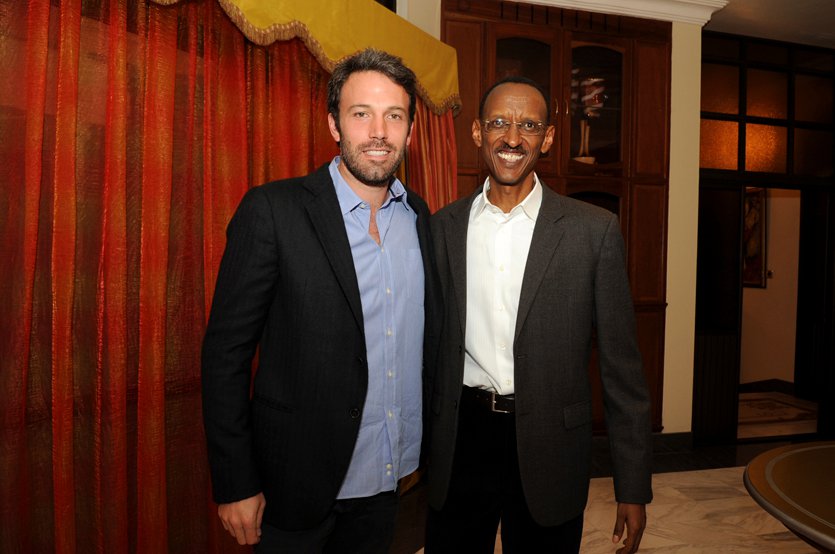
Others helped promote CIA cutout organizations like Save Darfur, which were designed to coopt efforts at grassroots oppositional/anti-imperialist movements in the West, while channeling student activist energy toward support for U.S.-aligned groups like the SPLA in Sudan.[15]
Snow outed Save Darfur founder John Prendergast (with Eric Reeves) as a U.S. intelligence operative who, working for intelligence front groups like ENOUGH, Genocide Intervention Network and Raise Hope for Congo, was active in promoting subversion across Africa in alignment with the interests of U.S. multi-national corporations.
Prendergast presents himself publicly as a hippie-type do-gooder who cares about the plight of African children when, in reality, he is a nefarious “deep-state” operative with much blood on his hands, who boasted of traveling across Central Africa with Paul Kagame.[16]
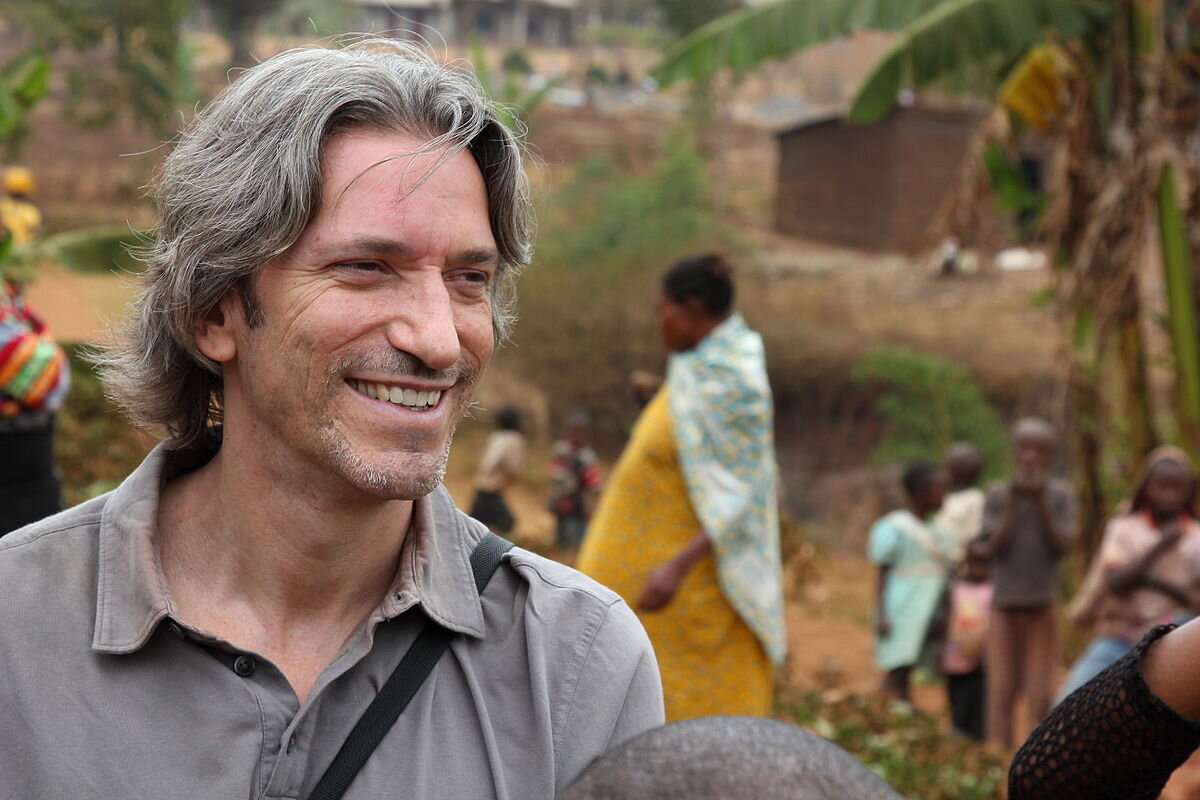

According to Snow, another perceived do-gooder with blood on her hands is Hollywood A-list actress Angelina Jolie, who starred as a “selfless” hero working as a UNHCR official in Hollywood’s Beyond Borders, which was in reality “a film that peddles the necessity of mixing Central Intelligence Agency gun-running operations with humanitarian missions—because it is ostensibly for the ‘right’ cause: Western-sponsored covert interventions.”[17]
Keith Harmon Snow was a hidden gem in the corrupt world of modern-day journalism, human rights NGOs and academia, who cared about humanity deeply and spoke truth to power.
Though Snow is no longer with us, his writings are accessible on the internet. They should be consulted by anyone who seeks a better understanding of the horrific consequences of U.S. foreign policy in Africa and wants to know more about the wealthy plutocrats who are behind it.
Visit Keith Harmon Snow’s website here.

Ugandan expert Remigius Kintu noted that the U.S. Committee for Refugees under Winter’s direction “became a virtual command post for RPF external operations: logistical management, disinformation propaganda, psychological operations and other political intelligence activities for RPF with almost unlimited funds from dubious sources in the USA.” Winter was known to have been present at Kagame’s headquarters at Mulindi, Rwanda, a few days before the offensive launched in the night of April 6-7, 1994. Winter’s protégés included such notable figures in shaping U.S. policy in Central Africa as Susan Rice, Gayle Smith, Jendayi Frazer, John Prendergast and Ted Gagne.In one of his articles, Snow referenced an article in The Atlantic which made clear that Winter served in effect as a military commander in Sudan. ↑
Snow also served as a researcher for Genocide Watch and Survivor’s Rights International in 2003-2004. He worked most of the 2000-2011 era on the ground in Central Africa, with genocide investigations in South Sudan and, for UNICEF, in Ethiopia.Snow was on Paul Kagame’s personal enemies and “hit list,” which was similar to Ukraine’s Myrotvorets CIA hit list website. ↑
Snow worked as a staff writer and photographer for the Japan International Journal and was the 2009 Regent’s Lecturer in Law and Society at the University of California, Santa Barbara, recognized for his work contesting official narratives on war crimes, crimes against humanity, and genocide. ↑
According to Snow, “the system often promoted the separation of children from parents and forced them into foster care. In the end, children are being trafficked to their abusers, and we’re talking about sex violations that are very easy to document and support.” ↑
Zenawi was valued by the U.S. government for, among other reasons, his allowing the U.S. to mount covert operations from Hurso, Ethiopia, across northern Africa and into the Middle East. ↑
Snow had in mind people like Eliza Griswold, Sarah Hamilton and New York Times columnist Nicholas Kristof who won a Pulitzer Prize for advancing disinformation about South Sudan and the alleged genocide in Darfur. Kristof’s writings lent support to Save Darfur, an astro-turf organization whose purpose was to channel campus activism away from opposition to the War on Terror and in support of U.S. policy goals in Sudan. Snow wrote that “the propaganda techniques used by these mainstays of American Freedom [i.e., Kristof and the like] are no more or less manipulative and sinister than those we associate with Russia or China or the so-called ‘Axis of Evil’ states (Cuba, Iran, Iraq, Libya, North Korea, Sudan, Syria, and Yemen). Like the bloodied victims (whether foreign civilians or U.S. troops), tortures, massacres and other war crimes and crimes against humanity are whited-out from the pages and screens of Western ‘news’ venues, leaving us with sanitized fantasy tales reinforcing our own sense of truth and justice, and the inherent goodness we all want to believe in.” ↑
Tempelsman later developed a plan for Angola that would bring the right-wing party, UNITA, into the government and allow his companies to bring U.S.-made deep-mining equipment into the country and then market the stones that were mined. Tempelsman’s intelligence ties were further reflected in his serving as director of the National Democratic Institute for International Affairs (NDI), an adjunct of the National Endowment for Democracy (NED), which finances pro-U.S. leaders around the world whose political platform resembles that of the Democratic Party and will serve U.S. foreign policy objectives. ↑
After his “retirement” from the CIA, Devlin was employed directly by Tempelsman. ↑
Barrick Gold’s board of directors included: Brian Mulroney, former PM of Canada; Edward Ney, former U.S. Ambassador to Canada and chairman of the private PR firm Young & Rubicam; former U.S. Senator Howard Baker (R-TN); J. Trevor Eyton, a member of the Canadian Senate; and Vernon Jordan, one of Bill Clinton’s lawyers and former executive director of the National Urban League. Snow further pointed out that Barrick Gold was one of the client companies of Andrew Young’s Good Works International lobbying firm. A former confidante of Martin Luther King, Jr., Young was the former mayor of Atlanta, and a key organizer of the U.S.-Uganda Friendship Council. ↑
Snow wrote that Mossad agent David Kimche worked alongside Roger Winter to aid the RPF victory in Rwanda. Israeli commanders were spotted on the battlefields of eastern Congo-Zaire and the Israeli firm Silver Shadow reportedly armed the Uganda Peoples’ Defense Forces in their alliance with Congolese warlord Jean-Pierre Bemba and his ruthless Movement for the Liberation of Congo. Israel also delivered mercenaries to South Sudan to fight the Khartoum government. In December 2011, Salva Kiir, South Sudan’s new warlord president, chose Israel for one of his first official visits. On July 23, 2012, in return for decades of covert Israeli support for the SPLA’s low-intensity war, the SPLA regime running the new South Sudan signed over Sudan’s water rights and “infrastructure development” to Israel. ↑
Among the lies regurgitated by Hammer was U.S. State Department propaganda that Hutu extremists shot down the presidential plane of Juvenal Habyarimana, triggering the Rwandan genocide. ↑
Snow wrote that Reeves, a conscientious objector to the Vietnam War who worked closely with Roger Winter, inflated mortality statistics in Darfur to help advance the cause of the Save Darfur organization. He “tolerated zero criticism or divergence from the party line.” Snow’s writings also showed the complicity of Congressional Black Caucus leader Donald Payne (D-NJ) in U.S. crimes in Africa. ↑
Snow wrote that the “‘Save Darfur’ campaign is deeply aligned with Jewish and Christian faith-based organizations in the United States, Canada, Europe and Israel. These groups have relentlessly campaigned for Western military action, demonizing both Sudan and China, but they have never addressed Western military involvement—backing factions on all sides. By mobilizing constituencies sympathetic to the ‘genocide’ label and the cries of ‘never again’ they do a grave disservice to the cause of human rights.” ↑
At age 33, Prendergast served as Bill Clinton’s Director of African Affairs at the National Security Council, where he worked with Susan Rice to create the Pentagon’s prized Africa Crisis Response Initiative (ACRI)—a euphemistically named entity created to project U.S. power in Africa—run by U.S. Army Special Forces Command (SOCOM). Snow wrote that Prendergast later worked for the International Crisis Group, another intelligence think tank and agitprop NGO fronting for factions close to the U.S. government. Prendergast also worked for Bread for the World, which hired former CIA Director Leon Panetta as a director. Dr. Yaa-Lengi Ngemi, Congolese author of Genocide in the Congo, sent a letter to a Philadelphia magazine that praised Prendergast, stating, “While you sing [John Prendergast’s] praises, the Congolese people who have been dying since 1996 have NO use for JP.” ↑
The anti-Jane Fonda, Jolie has more and more become a leading member of the U.S. national security apparatus, joining the influential and well-endowed Council on Foreign Relations think tank in 2007, and penning a joint op-ed in The New York Times with John McCain in 2018 calling for U.S. intervention in Syria and Myanmar. ↑
CovertAction Magazine is made possible by subscriptions, orders and donations from readers like you.
Blow the Whistle on U.S. Imperialism
Click the whistle and donate
When you donate to CovertAction Magazine, you are supporting investigative journalism. Your contributions go directly to supporting the development, production, editing, and dissemination of the Magazine.
CovertAction Magazine does not receive corporate or government sponsorship. Yet, we hold a steadfast commitment to providing compensation for writers, editorial and technical support. Your support helps facilitate this compensation as well as increase the caliber of this work.
Please make a donation by clicking on the donate logo above and enter the amount and your credit or debit card information.
CovertAction Institute, Inc. (CAI) is a 501(c)(3) non-profit organization and your gift is tax-deductible for federal income purposes. CAI’s tax-exempt ID number is 87-2461683.
We sincerely thank you for your support.
Disclaimer: The contents of this article are the sole responsibility of the author(s). CovertAction Institute, Inc. (CAI), including its Board of Directors (BD), Editorial Board (EB), Advisory Board (AB), staff, volunteers and its projects (including CovertAction Magazine) are not responsible for any inaccurate or incorrect statement in this article. This article also does not necessarily represent the views the BD, the EB, the AB, staff, volunteers, or any members of its projects.
Differing viewpoints: CAM publishes articles with differing viewpoints in an effort to nurture vibrant debate and thoughtful critical analysis. Feel free to comment on the articles in the comment section and/or send your letters to the Editors, which we will publish in the Letters column.
Copyrighted Material: This web site may contain copyrighted material the use of which has not always been specifically authorized by the copyright owner. As a not-for-profit charitable organization incorporated in the State of New York, we are making such material available in an effort to advance the understanding of humanity’s problems and hopefully to help find solutions for those problems. We believe this constitutes a ‘fair use’ of any such copyrighted material as provided for in section 107 of the US Copyright Law. You can read more about ‘fair use’ and US Copyright Law at the Legal Information Institute of Cornell Law School.
Republishing: CovertAction Magazine (CAM) grants permission to cross-post CAM articles on not-for-profit community internet sites as long as the source is acknowledged together with a hyperlink to the original CovertAction Magazine article. Also, kindly let us know at info@CovertActionMagazine.com. For publication of CAM articles in print or other forms including commercial internet sites, contact: info@CovertActionMagazine.com.
By using this site, you agree to these terms above.
About the Author

Jeremy Kuzmarov holds a Ph.D. in American history from Brandeis University and has taught at numerous colleges across the United States. He is regularly sought out as an expert on U.S. history and politics for radio and TV programs and co-hosts a radio show on New York Public Radio and on Progressive Radio News Network called “Uncontrolled Opposition.”
He is Managing Editor of CovertAction Magazine and is the author of six books on U.S. foreign policy, including Obama’s Unending Wars (Clarity Press, 2019), The Russians Are Coming, Again, with John Marciano (Monthly Review Press, 2018), Warmonger. How Clinton’s Malign Foreign Policy Launched the U.S. Trajectory From Bush II to Biden (Clarity Press, 2023); and with Dan Kovalik, Syria: Anatomy of Regime Change (Baraka Books, 2025).
Besides these books, Kuzmarov has published hundreds of articles and contributed to numerous edited volumes, including one in the prestigious Oxford History of Counterinsurgency .
He can be reached at jkuzmarov2@gmail.com and found on substack here.

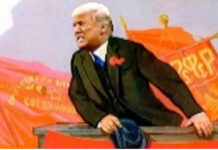


Jeremy, in one of your links I read Keith was working on a documentary film project titled “Politics of Genocide” back in 2012. Has this documentary film ever been released? Many thanks for this important and informative obituary.
This web site contains a lot of information about genocide
https://www.ushmm.org/genocide-prevention/countries/rwanda
Excellent article.